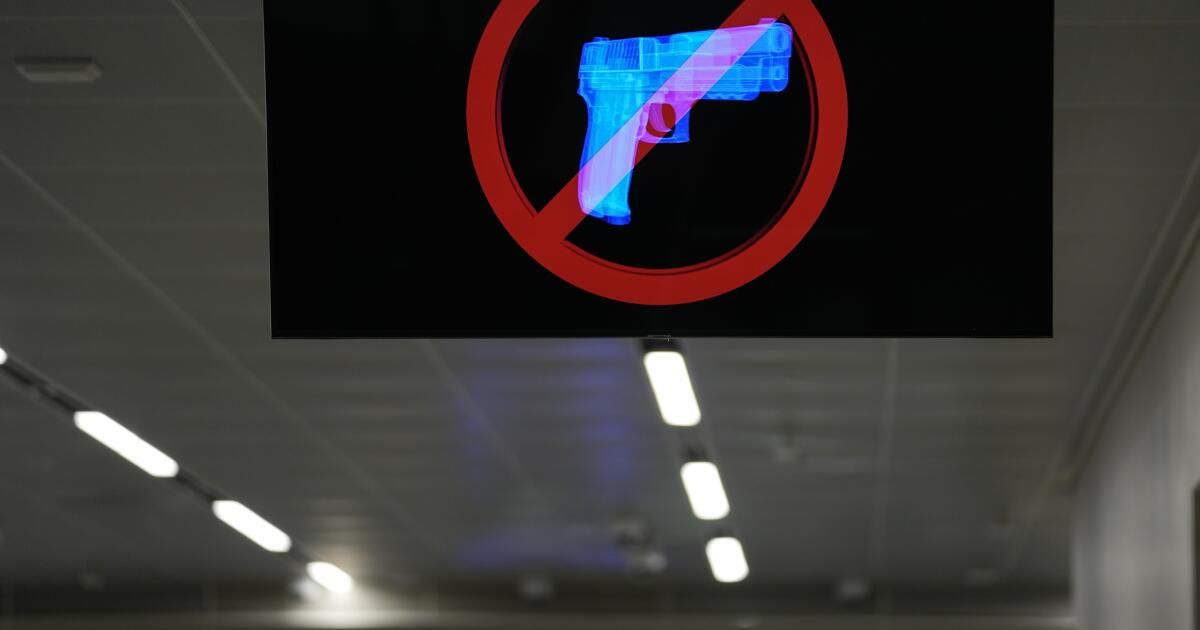The Supreme Court's ruling on Friday finally brought common sense to the analysis of gun rights under the Second Amendment. It will save lives.
In United States v. Rahimi, the court, in an 8-1 decision, upheld the constitutionality of a federal law that makes it a crime for a person under a restraining order in a domestic violence case to possess a firearm.
The court's decision should not be controversial: a person can be prohibited from having a gun “once a court has determined that [the individual] represents a credible threat to the physical safety of another person.” But the implications of this decision are enormous in allowing for essential regulation of firearms in the United States.
To put Friday's decision in context, from 1791 to 2008, the Supreme Court never invalidated any federal, state, or local gun regulations. In a handful of Second Amendment decisions, the court always said the amendment meant what it says: Americans have the right to bear arms for service in the militia.
But in 2008, in District of Columbia v. Heller, the court dramatically changed course. In a 5-4 decision, the justices said the Second Amendment protects the right to keep firearms in the home for safety reasons.
The court did not revisit the scope of gun rights for 14 years, until 2022 and the New York State Rifle and Pistol Association. against Bruen. In an opinion by Justice Clarence Thomas, the court said that the Second Amendment protects the right to keep guns outside the home, that the amendment is an “unconditional right” and that gun regulations are constitutional only if they were historically permitted. Thomas suggested that this meant that gun laws now had to be of the same type as they existed in 1791, when the Second Amendment was ratified.
Bruen has led to challenges to all types of gun regulations in the country, causing much confusion in lower courts. Based in Bruen, the United States Court of Appeals for the Fifth Circuit declared unconstitutional the federal statute prohibiting domestic abusers from possessing weapons. The conservative judges of the Fifth Circuit followed Thomas's reasoning: since such restrictions on gun ownership did not exist in 1791, they are unconstitutional today.
On Friday, the Supreme Court wisely reversed the Fifth Circuit. Chief Justice John G. Roberts Jr. wrote for the majority, with only Thomas dissenting. The court stated: “When a restraining order contains a finding that an individual poses a credible threat to the physical safety of an intimate partner, that person may be prohibited, pursuant to the Second Amendment, from possessing firearms.” fire while the order is in effect. Since their founding, our nation’s firearms laws have included provisions that prevent people who threaten to cause physical harm to others from misusing firearms.”
Defending this law is, in itself, important. Preventing those under domestic violence restraining orders from owning guns will save many lives, especially women's lives. The Educational Fund to Stop Gun Violence reports that a woman “is five times She is more likely to be killed when her abuser has access to a gun.”
The court's decision is also important because it makes it much more likely that many other gun regulations will be allowed. Roberts' majority opinion rejects the view that gun regulations are constitutional only if they are of the type that existed in 1791. He wrote: “However, some courts have misinterpreted the methodology of our recent Second Amendment cases. These precedents are not intended to suggest a law trapped in amber.”
Other conservative justices wrote separately to indicate that the meaning of the Second Amendment was not fixed in 1791. Justice Brett Kavanaugh said: “The Court interprets and applies the Constitution by examining the text, the history before and after ratification, and the precedents.” This rejects the originalist view that nothing matters except the original intention behind a constitutional provision.
Rahimi's decision will affect many pending challenges to gun regulations. For example, there is a federal law, and there are laws in almost every state, that prohibit convicted felons from owning guns. Hundreds of challenges to these laws have been filed over the past two years, and lower courts are divided over whether the regulations violate the Second Amendment. There is now a solid basis to defend them.
There is no doubt that the court's current conservative majority supports the right to bear arms, as reflected in last week's decision that struck down a federal regulation that banned buffers, devices that allow a rifle to function like a machine gun. That makes Rahimi's decision especially important. The 8-1 verdict emphatically reaffirms the government's power to regulate firearms to protect safety and save innocent lives.
Erwin Chemerinsky is an Opinion contributor and dean of the UC Berkeley School of Law.












